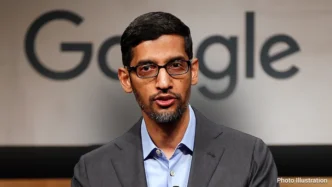Perplexity is no longer just trying to rival Google—it’s aiming to be Google.
In a recent podcast interview, CEO Aravind Srinivas shared that the company’s upcoming browser, Comet, will track everything users do online. The goal? To build detailed user profiles and serve hyper personalized ads.
Srinivas explained that relying solely on search queries inside Perplexity’s app isn’t enough. Most in-app prompts, he said, are work-related and don’t reveal much about personal interests or habits. To really understand users, Perplexity wants to see everything—from the hotels they browse to the restaurants they visit and the shopping sites they frequent.
“That’s why we wanted to build a browser,” Srinivas said, “so we can capture behavior even outside our app and deliver better, more relevant ads.”
Despite the privacy concerns that naturally follow such a plan, Srinivas believes users won’t mind being tracked. After all, he argues, they’ll be rewarded with ads that actually interest them. Perplexity plans to integrate these personalized ads into its discover feed as part of the broader browsing experience.
Comet, despite facing delays, is now scheduled to launch in May.
In many ways, Perplexity is taking a page directly from Google’s playbook. Google’s dominance in search and advertising is rooted in its ability to quietly track users across the internet through Chrome and Android.
And Perplexity isn’t stopping with desktop browsing. The company recently announced a partnership with Motorola, securing a spot for its app on Razr smartphones. Users will even be able to access Perplexity’s features through Motorola’s Moto AI, simply by typing “Ask Perplexity.”
Srinivas also hinted at ongoing talks with Samsung. While he didn’t confirm a deal outright, he referenced a Bloomberg report earlier this month that discussed both partnerships.
Of course, Google isn’t alone in online tracking. Meta uses its Pixel technology to gather behavioral data across countless websites—even from users without Facebook or Instagram accounts. Even Apple, despite its strong privacy marketing, tracks user locations by default to enhance ad targeting inside its apps.
Yet, there’s a growing backlash. Across the U.S. and Europe, users from all political backgrounds increasingly distrust big tech’s data collection practices.
That’s why the timing of Srinivas’ candid remarks is striking. Right now, Google is battling the U.S. Department of Justice in court over allegations of monopolistic behavior tied to search and advertising dominance. In fact, the DOJ wants a judge to force Google to sell Chrome.
Interestingly, both OpenAI and Perplexity have expressed interest in buying Chrome if Google is forced to divest. No surprise there—who wouldn’t want the power that comes with a browser millions of people use daily?













